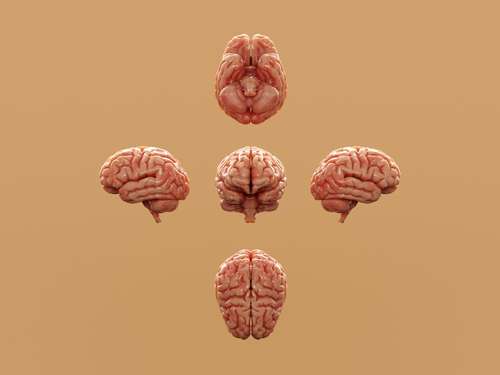Have you ever noticed how a restless night can sometimes send your mind into a tailspin the next day? Lately, there’s been a growing buzz about the link between chronic insomnia and an increased risk of dementia-related conditions. It might surprise you to know that chronic insomnia could lead to cognitive decline and brain aging at a much faster pace—by nearly 3.5 years earlier than expected. In today’s article, we’ll break it down and chat about how lack of sleep could potentially play a major role in shaping our brain health, as well as what we can do about it.
The conversation around sleep disorders has evolved over the years. From simply feeling tired to understanding the real dangers of sleep deprivation on our memory, brain health, and overall mental health, the science of sleep is now more relevant than ever. We’re here to explore the risks and realities surrounding chronic insomnia and its alarming association with neurodegenerative diseases like Alzheimer’s disease.
Understanding the Link between Chronic Insomnia and Dementia Risk
Chronic insomnia isn’t just about tossing and turning at night; it’s a condition that might leave you feeling like you’re aging faster than you should. Researchers have discovered that those with chronic insomnia not only feel more fatigued but may also suffer from a 40% greater risk of developing dementia. This connection paints a clear picture: poor sleep quality has consequences that go beyond moments of grogginess in the morning.
Many experts now consider sleep disorders as a potential catalyst for accelerated cognitive decline. Imagine your brain as a finely tuned machine—skimping on sleep is like constantly running that machine at overdrive without the chance to cool down. In the long run, this can lead to memory loss and other symptoms reminiscent of an aging population. The science here is based on studies that have closely monitored sleep patterns and brain changes over time, and the numbers just don’t lie.
When you think about it, the idea that a few restless nights could tip the scales in favor of neurodegenerative diseases is both fascinating and a bit terrifying. Cognitive decline in someone who’s otherwise healthy might not always be easily noticeable, but over time, the effects accumulate and can impair daily life. Sleep isn’t a luxury—it’s a necessity that supports our mental health and overall well-being.
How Sleep Disorders Affect Brain Health
Sleep quality matters. A solid night’s rest is the cornerstone of good brain health. People with chronic insomnia are at a higher disadvantage when it comes to preserving their cognitive functions. In this section, we’ll dive into how sleep disorders, especially chronic insomnia, can trigger or accelerate the progression of these severe conditions.
It’s well-known that during sleep, the brain works on essential repair tasks. If you’re not getting enough sleep because of chronic insomnia, these repairs aren’t happening efficiently. This can lead to an accumulation of waste in the brain, which, over time, may contribute to conditions like Alzheimer’s disease. Just think of it as neglecting your car’s maintenance—skipping important check-ups and repairs inevitably leads to bigger, costlier problems down the road.
There’s also a direct link between sleep deprivation and memory loss. Every time you lose sleep, you’re potentially losing a small piece of the cognitive puzzle that keeps you sharp. The interplay between sleep disorders and brain health emphasizes the need for early intervention. It’s like trying to stop a snowball before it becomes an avalanche—small, consistent efforts can make a world of difference in the long haul.
Many sleep research experts point out that chronic insomnia not only disrupts sleep architecture but also results in an imbalance in the chemicals that regulate mood and memory. This imbalance can seriously affect your mental health, essentially paving the way for long-term brain health issues.
Tips and Strategies to Improve Sleep Quality
Have you ever wondered how to break the vicious cycle of sleepless nights and daytime tiredness? The first step is recognizing the serious impacts sleep disorders can have, from cognitive decline to a higher dementia risk. Now, let’s talk solutions.
One of the simplest strategies is establishing a consistent sleep schedule. Going to bed and waking up at the same time every day reinforces your body’s natural circadian rhythm. This small change can be incredibly impactful over time. It might feel like a minor tweak, but for many, this consistency is the first step to better sleep quality.
Another vital tip is creating a sleep-friendly environment. Dim the lights, lower the temperature, and eliminate noise. Think of it as setting up your personal sanctuary—one where each element is designed to help you relax and unwind. If you’ve ever felt calm reading a book under low lights, you know how powerful the ambiance can be.
It’s also important to steer clear of stimulants like caffeine or heavy meals close to bedtime. Your body needs time to wind down for the night, and giving it the right cues is key to improving sleep quality. Alongside these changes, don’t underestimate the power of regular exercise. Even short walks or a light session of yoga can signal your body that it’s time to relax and reduce stress. These simple adjustments can greatly influence your overall sleep medicine outcomes.
The Role of Sleep Research in Combating Neurodegenerative Diseases
Recent breakthroughs in sleep research have shed light on just how pivotal sleep is in protecting brain health. Increased funding and attention in the field of sleep medicine are helping us better understand the intricate connections between sleep disorders, chronic insomnia, and neurodegenerative diseases.
Scientists believe that addressing insomnia effects early on could potentially mitigate long-term cognitive decline and dementia risk. When experts examine the brain tissue of individuals who have suffered prolonged sleep deprivation, they find signs that resemble early aging. These findings propel new research initiatives aimed at developing preventive strategies and targeted therapies for the aging population.
This research is urgent because it connects sleep deprivation with tangible outcomes in memory loss and brain aging. In the midst of evolving challenges faced by an aging population, understanding and combating sleep disorders can have a ripple effect on overall public health. It’s no wonder that the evolving field of sleep research is as dynamic as it is promising!
Many in the sleep medicine community now emphasize that improved sleep quality is not just about feeling rested, but about steering clear of potential neurodegenerative diseases. With better initiatives and educational campaigns, we can help spread the word that chronic insomnia isn’t a harmless inconvenience—it’s a serious condition that requires attention.
Wrapping It Up
In summary, the evidence is mounting that chronic insomnia is linked to a significant increase in dementia risk, cognitive decline, and accelerated brain aging. Whether you’re concerned about memory loss or aiming to safeguard your mental health, it’s clear that improving sleep quality should be a top priority. The importance of sleep research and modern sleep medicine cannot be overstated when it comes to preventing potential complications like Alzheimer’s disease and other neurodegenerative diseases.
So, next time you’re tempted to push through a sleepless night, remember: your brain is counting on you to get some rest. By taking small steps to improve your habits and environment, you can create a ripple effect benefiting not only your daily energy levels but also your long-term brain health. After all, isn’t it time we all invested in a better night’s sleep for a healthier tomorrow?




